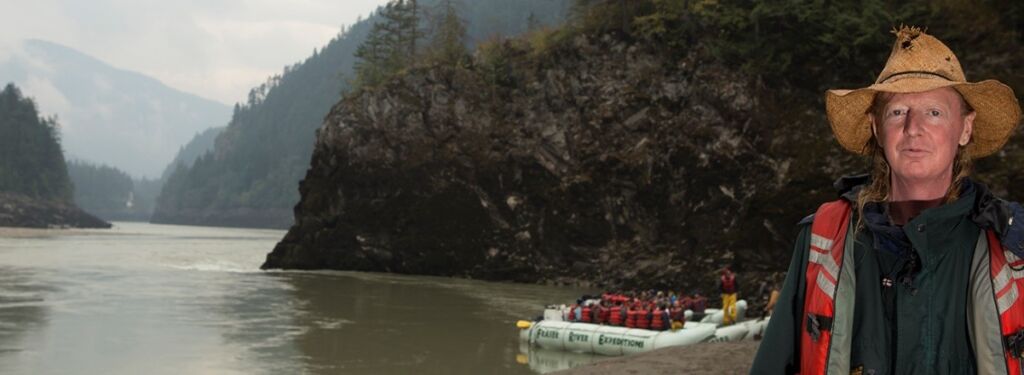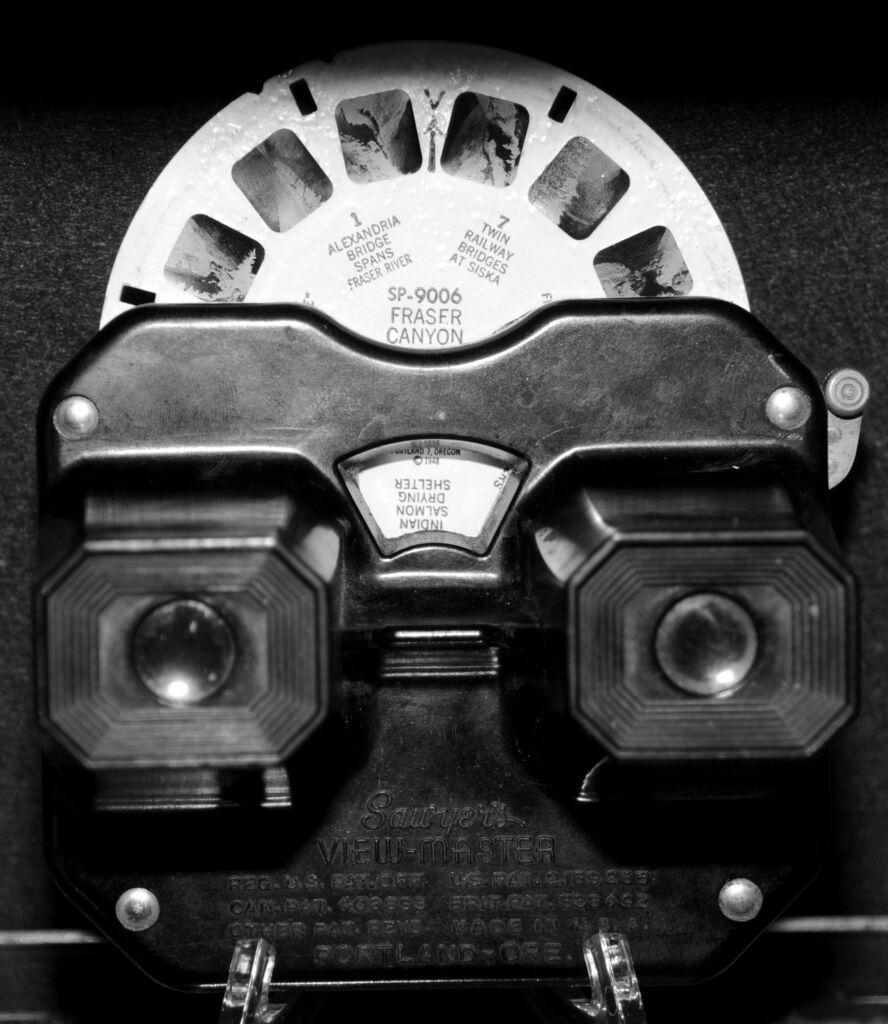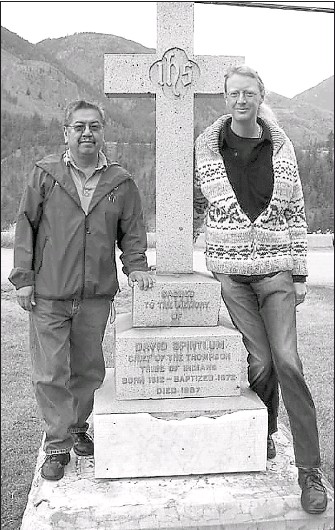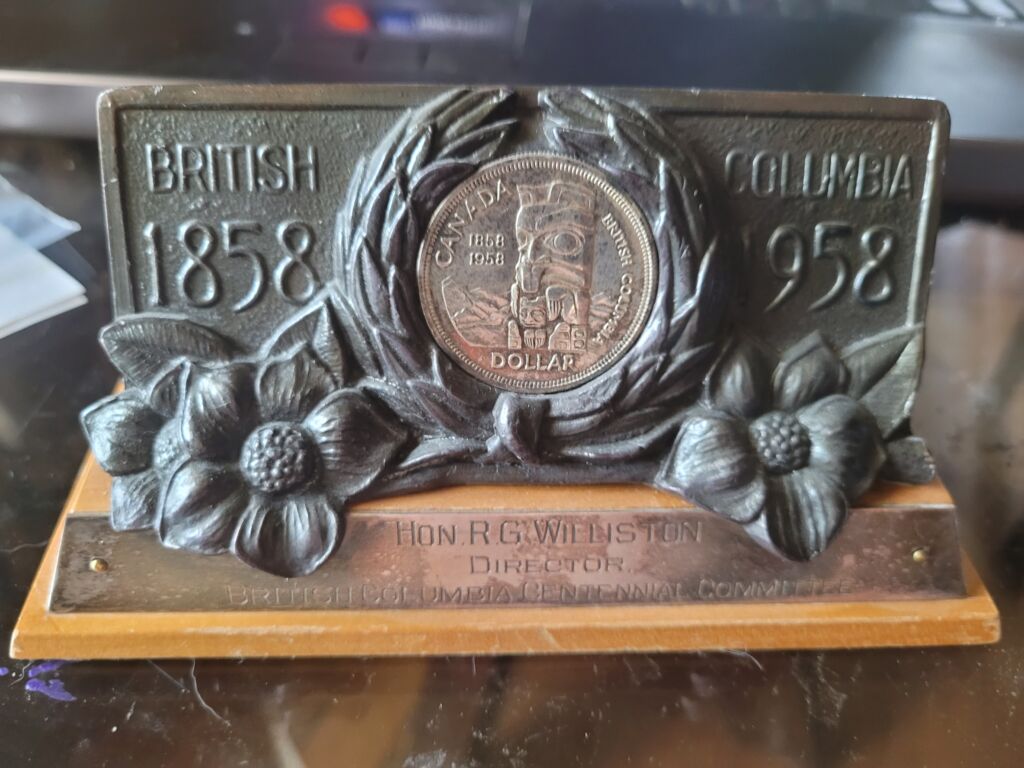A cabinet of curiosities
Untold Tales of Old British Columbia
by Daniel Marshall
Vancouver: Ronsdale Press, 2024
$24.95 / 9781553807049
Reviewed by Robin Fisher
*

There seems, these days, to be a lot of untold history of British Columbia. Knowledge Network gave us British Columbia: An Untold History in which historians told us, in earnest tones, what they have been telling us for decades about the downside of the Province’s history. For this historian, the Knowledge Network documentary was more the “unlistened” to history of British Columbia. Be that as it may, now Daniel Marshall is telling us Untold Tales of Old British Columbia and his stories are altogether different. Many of his histories actually are untold or, even if we have heard them before, he provides a new, often personal, take on them. These tales come from an historian whose family has been in British Columbia for generations and have lived on and cherished the land. They arise from a growing sense that these “newcomer” stories are also worth telling.

Marshall likens his collection of stories to a cabinet of curiosities. In his interview with Trevor Marc Hughes on this website he explores that idea further. He delights in taking a curio out of a cabinet and turning it over as he explores its meaning. That is what he is doing in this book with these tales. His stories are eclectic and individual. They range from major developments in British Columbia history – the Fraser River gold rush, British Columbia’s entry into confederation, and the route to be taken by the trans-Canadian railway, for example – to human interest stories -the one about a tenderfoot who appears in Yale in 1858 and turns out to be a woman disguised as a young man and searching for her lost gold miner husband, or the story of four miners who nearly perish on Christmas Day when they ignore advice and head out in a snowstorm and another about Alexander Dunsmuir’s tragic affair with another man’s wife.
The tales, whether fun or sad, are written to engage the curiosity of the reader. Some are diverting but they are not random. Marshall is a storyteller and he is also an historian thinking about the past. There are definite views about the shape British Columbia history expressed through these vignettes.

The tales focus on the gold rush area and its aftermath. There are a few on the earlier fur trade period and others that take us up to the present and tell of floods and fires. But the mid to late nineteenth century is the focus. This is a time, and these are tales, that Marshall knows well from longstanding interest and the research that went into his award-winning book Claiming the Land: British Columbia and the Making of a New El Dorado (Vancouver: Ronsdale Press, 2018). He shares with Knowledge Network the view that this was the formative period of British Columbia history: that the gold rush is our origin story. Marshall emphasises the north/south connections of geography and history as opposed to the west/east connections of empire and nationhood. With that in mind, the gold rush becomes our formative moment when British Columbia was confirmed as British. James Douglas, the colonial governor, “was a brilliant tactician, and kept this land – through the chaos of the 1858 gold rush – free of the reprehensible, racial discrimination and warfare then prevalent in the United States and safe from the threat of American annexation itself.” That is a valid view grounded in evidence and expressed with flair. At the same time, it does, for the historian in me, raise questions as it tends to downplay the earlier exploration and fur trade period of British Columbia history, let alone thousands of years of prior indigenous presence. Would James Douglas have preserved the west coast from the Americans if he had not had decades of the experience as a fur trader interacting with First Nations people? OK, so that is “if” history where historians, and angels, should fear to tread. We should, nevertheless, ask ourselves the question are there ever turning points in history or is everything an outcome of what went before.

Good historical writing raises good questions and Marshall’s Untold Tales offers both. The deal by which British Columbia entered confederation was called the Terms of Union and unlucky clause thirteen of those terms was the one that dealt with “Indians and Indian land.” There is a famous phrase in those terms that specifies that, in dealing with Indian land, Canada will follow “a policy as liberal as” that followed by British Columbia. It is a phrase that now we would at least call an “alternative fact” if not unmitigated nonsense. I and others have argued that Joseph Trutch, who asserted, on the eve of confederation, that Indigenous people had been treated really well in British Columbia, was the author of that clause. Marshall wants to let Trutch off the hook and pin most of the responsibility on the British Colonial Secretary. I will have to sit down over a beer and have that one out with Dan Marshall when I get a chance. We need to compare evidence.
In British Columbia, the land is the stage on which history is played out. Many of his stories start with Marshall establishing a connection with the land and particular localities where the tales play out. “Ever since my youth, I have sought the forgotten trails of our history.” He knows the terrain of the Fraser River gold rush in detail and from experience. The preface, called “Tracking Down History,” tells of a rafting and hiking trip in the Fraser canyon and how, from a restored gold rush trail, he looks down to a rock shelf on the river bank that he believes was the campsite of the Whatcom Guards, an American militia bent on removing Indians from the landscape. Fortunately other, cooler heads prevailed and a peace treaty was negotiated.



In one of his most telling tales, Marshall travels in and around Victoria with his grandfather who remembers the places and landscapes of his younger days. “There was nowhere that we passed by that did not spark memories.” That experience reminded Marshall “of similar road trips with Indigenous Elders throughout their traditional territories… Elders whose oral cultures see the land as a History book.” He cannot help but to compare the two experiences. “And so, in a similar way, my grandfather – my own elder – travelled the landscape that day and shared the oral history of our family that has spanned the generations as residents of the Colony of Vancouver Island, then of the “united” Colony of British Columbia and finally as a province of Canada.” In the last untold tale of the book, Marshall takes the implications of that story up to the present and reflects on truth and reconciliation. He concludes that: “For true reconciliation to work effectively, all sides of this complex issue should be heard.”
At one level Marshall’s tales are history for readers with short attention spans which is what the book market seems to demand these days. Putting the story back into history is certainly a good thing. But that is not all. There is also an overriding interpretation here that we should not miss, and it is rather different from the history by consensus that is now all the rage. That, for me, is a greater value and now more needed. So read these tales and be entertained and intrigued by these stories of British Columbia’s past but also be an historian and think about what they mean.

*

Robin Fisher taught and wrote history as a faculty member at Simon Fraser University before he moved into university administration and contributed to the establishment of two new universities: the University of Northern British Columbia in Prince George and Mount Royal University in Calgary. His books include Contact and Conflict: Indian-European Relations in British Columbia, 1774-1890 (UBC Press, 1977; second edition, 1992) and Duff Pattullo of British Columbia (University of Toronto Press, 1991). He was the 2022 Lieutenant Governor’s Medal for Historical Writing for Wilson Duff: Coming Back, A Life. [Editor’s note: Robin Fisher has reviewed books by Margaret Horsfield & Ian Kennedy, Gordon Miller, Art Downs, Richard Boyer, William Frame & Laura Walker, Michael Layland for The British Columbia Review, and contributed two popular essays, The Way We Were: Two Friends, Two Historians and “The Noise of Time” and the Removal of History? ]
*
The British Columbia Review
Interim Editors, 2023-25: Trevor Marc Hughes (non-fiction), Brett Josef Grubisic (fiction and poetry)
Publisher: Richard Mackie
Formerly The Ormsby Review, The British Columbia Review is an online book review and journal service for BC writers and readers. The Advisory Board now consists of Jean Barman, Wade Davis, Robin Fisher, Barry Gough, Hugh Johnston, Kathy Mezei, Patricia Roy, Maria Tippett, and Graeme Wynn. Provincial Government Patron (since September 2018): Creative BC. Honorary Patron: Yosef Wosk. Scholarly Patron: SFU Graduate Liberal Studies. The British Columbia Review was founded in 2016 by Richard Mackie and Alan Twigg.
“Only connect.” – E.M. Forster